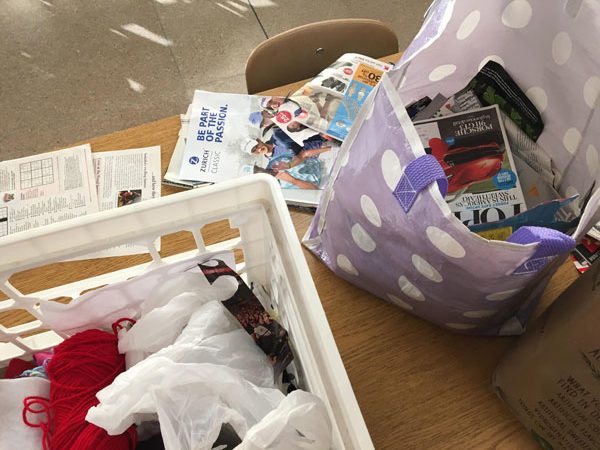Considering Eastern Christian School? Join us at an upcoming open house event or take a personal tour! Register Online
Yup – Believe it or Not, This is a Test!
Yup–believe it or not, this is a test! Not quite the type of test that most of us think of when we talk about testing. Mention the word “test,” and our brains scream out in fear, cutting off our ability to think creatively. Testing brings up images of scantron sheets with fill in the circle questions, or essay questions requiring well developed topic sentences and paragraphs.
But how do you “test” student understanding after a study of the Harlem Renaissance–an explosion of creativity in the African-American artistic community early in the 20th Century? How do you test in a unit devoted to listening to jazz and blues, reading poetry, and examining the artistic styles/themes of artists like Romare Bearden, Jacob Lawrence, and Aaron Douglas? So much of the unit has been looking and listening, that a traditional test would not really measure understanding.
Instead, against the background of jazz and blues music in the cafeteria, students work in groups to learn the artistic styles of important artists of the Harlem Renaissance. Then, in small groups they create a piece of art done using the technique of Romare Bearden (check him out— look at his collages), but using the themes and styles of Aaron Douglas or Jacob Lawrence. Students spend two class periods talking, drafting ideas for their art, cutting up magazines/newspapers, gluing parts of faces to poster board, etc. They must title the work and then present it to the class.
Pretty cool–but how is this a test!!?? Think about what a test does at the end of a unit–it measures student understanding. If students are able to create a piece of art that meets the requirements laid out and demonstrates mastery of the artistic styles, then it is clear that they understand. More than that, they are showing that they are able to apply their learning in an original piece of art.
And, ultimately, what do we want our graduates able to do? We are not training them to be good Jeopardy players (although we might have some budding future Jeopardy champions). We are praying that our graduates can apply what we’ve taught, to become effective builders in the kingdom of God.







